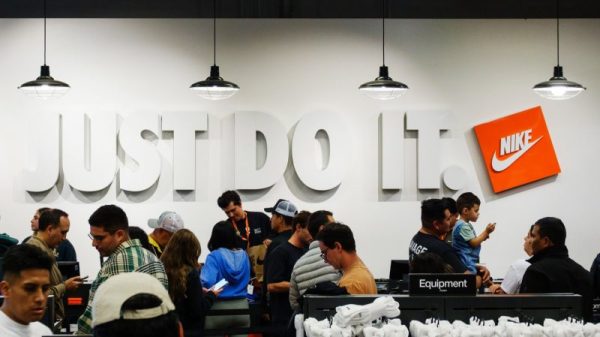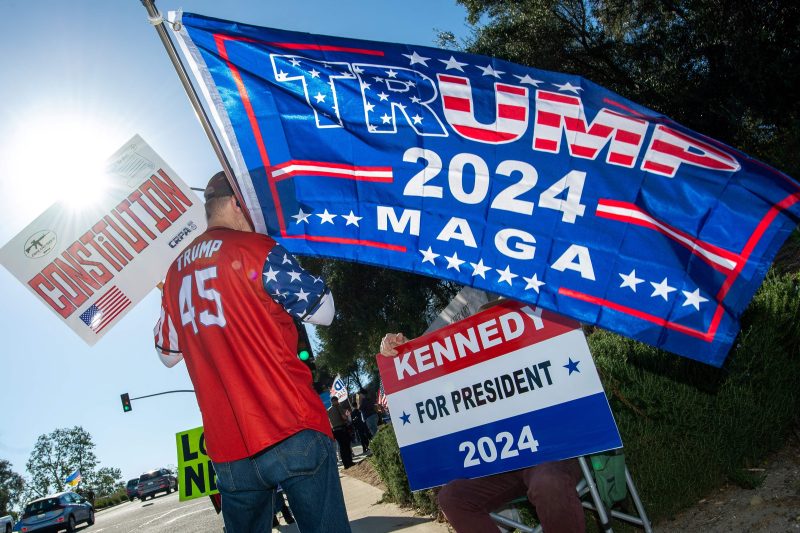The American right’s efforts to elevate Robert F. Kennedy Jr. were as transparent as they were cynical. The idea, as advanced by Stephen K. Bannon and the like, was clearly to try to embarrass President Biden in the Democratic primary. So they used Kennedy’s inflated early poll standing as an excuse to treat the primary challenge from a fringe figure as something real and threatening.
Fox News picked up the ball and ran with it, publishing many dozens of stories and featuring him regularly on-air. House Republicans even invited him to testify on Capitol Hill.
It hasn’t worked. And now, it’s looking as if the whole thing could backfire.
The latest indications are that Kennedy will end his Democratic primary challenge against Biden and instead run in the general election. Mediaite reported Friday that he will declare an independent bid on Oct. 9, and Kennedy is now teasing a major announcement on that date, while saying and doing the kinds of things that suggest Mediaite’s report is accurate.
(Asked to comment on whether the report was true, Kennedy’s campaign merely responded with a link to a video previewing his Oct. 9 announcement.)
And while Kennedy is a lifelong Democrat from the country’s preeminent Democratic family, there is plenty of reason to believe that a third-party bid could hurt Donald Trump more than Biden.
There is no good polling that tests a Kennedy third-party bid. What we do know is that Republicans like Kennedy a heck of a lot more than Democrats do. That was true pretty shortly after he launched his campaign in April, and the gap has now grown into a chasm.
The latest polling from Quinnipiac University shows that Republicans like Kennedy by a 30-point margin, 48 percent favorable to 18 percent unfavorable.
Democrats, meanwhile, have developed an overwhelming distaste. The Quinnipiac poll shows just 14 percent have a favorable opinion of him, compared with 57 percent who have an unfavorable one.
Democrats never particularly liked Kennedy, despite what you might have been led to believe. But he’s gone from 14 points underwater (more unfavorable than favorable) with them in mid-June, to 23 points underwater in late June, to 26 points in July, to 31 points in August, and now to 43 points underwater.
As for Republicans, they like Kennedy better than they like many of the top GOP presidential candidates. They even like him better than entrepreneur Vivek Ramaswamy and former vice president Mike Pence and about as much as former South Carolina governor Nikki Haley and Sen. Tim Scott (R-S.C.). (Only Trump and Florida Gov. Ron DeSantis are clearly more popular.)
He’s about as polarizing (with Republicans in favor and Democrats opposed) as Ramaswamy. And he’s less popular among Democrats than Haley and former New Jersey governor Chris Christie.
Imagine if any of these GOP candidates were to drop out and wage a third-party campaign; we could be talking about a potential spoiler for Trump’s general-election hopes, not Biden’s.
This comes with some caveats.
One big one is that we don’t know what kind of ballot access Kennedy might get in key states — a hurdle for any third-party candidate. The New York Times previously reported that he had been in talks with the Libertarian Party, which could help with that, but running on his own would mean collecting large amounts of signatures.
“The vast majority of states have fairly easy ballot access requirements for presidential candidates who run outside the two major parties,” said third-party ballot access expert Richard Winger. But Winger added that Kennedy “would have a far easier ballot access path as the [Libertarian] nominee.”
Another caveat is that it matters which voters might be up for grabs in a contest between Trump and Biden. While a greater percentage of Republicans than Democrats like Kennedy, indications seem to be that Kennedy’s potential base (conspiratorial, anti-establishment, anti-vaccine people) overlaps significantly with Trump-oriented voters. If those voters like Kennedy but already have a home, it mitigates the impact.
But even many Trump-skeptical Republicans like him. While his numbers in the Quinnipiac poll were better among Republicans who back Trump in the GOP primary — 53 percent favorable to 17 percent unfavorable — his split among non-Trump-supporting GOP primary voters was still well in positive territory, at 40-18.
We’ve also seen that the number of Republican-leaning voters who are dissatisfied with Trump as their nominee rivals the number of Democrats who are dissatisfied with Biden as their option. And these numbers suggest that Kennedy has significantly more appeal to the political right than to the political left.
Kennedy has so little political appeal on the left, as we recapped from a poll this summer in New Hampshire, that very few left-leaning voters see him as an option:
Those people who elevated Kennedy are apparently about to confront a very different situation, which might not play out quite as they had hoped.



























